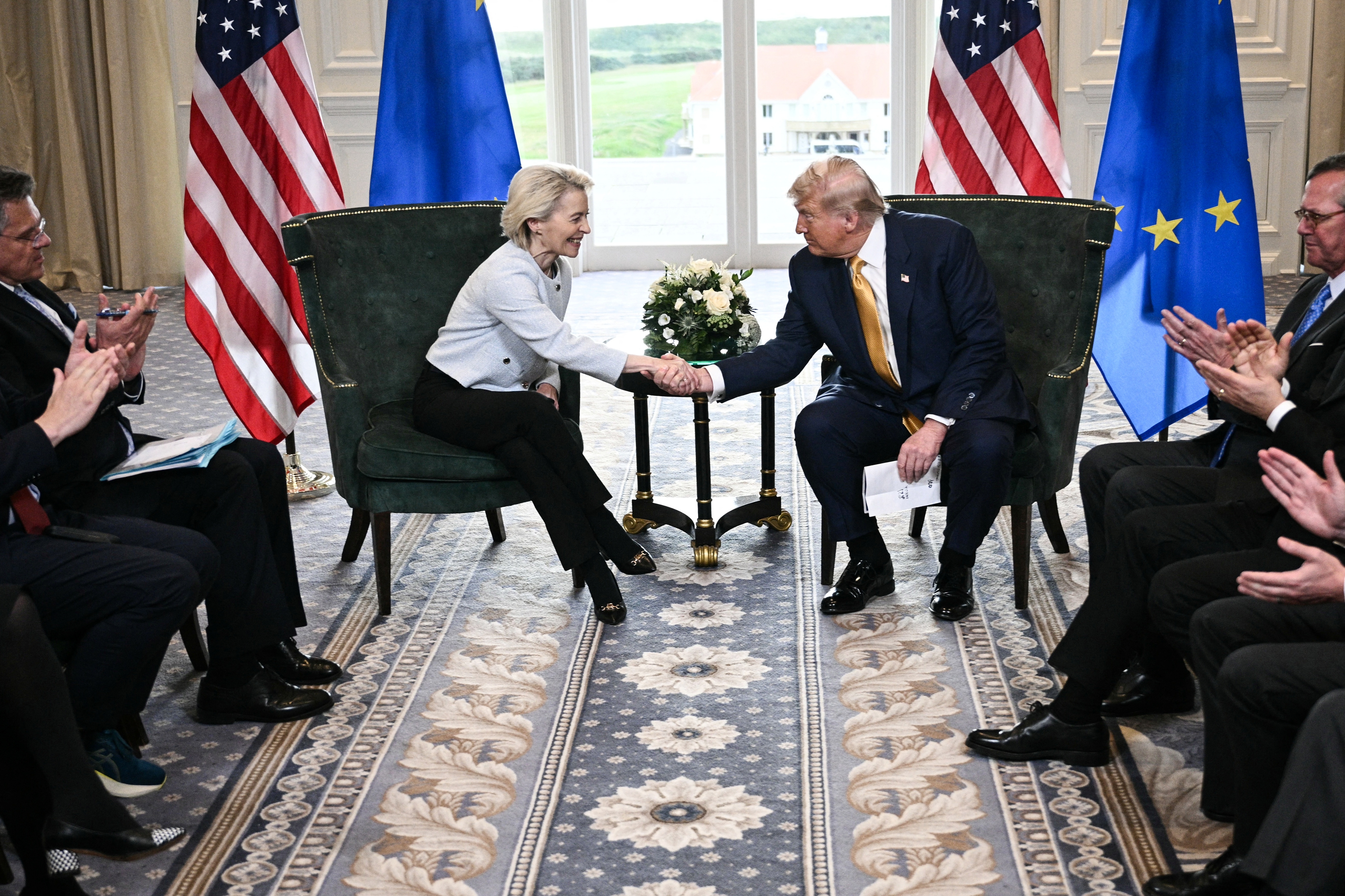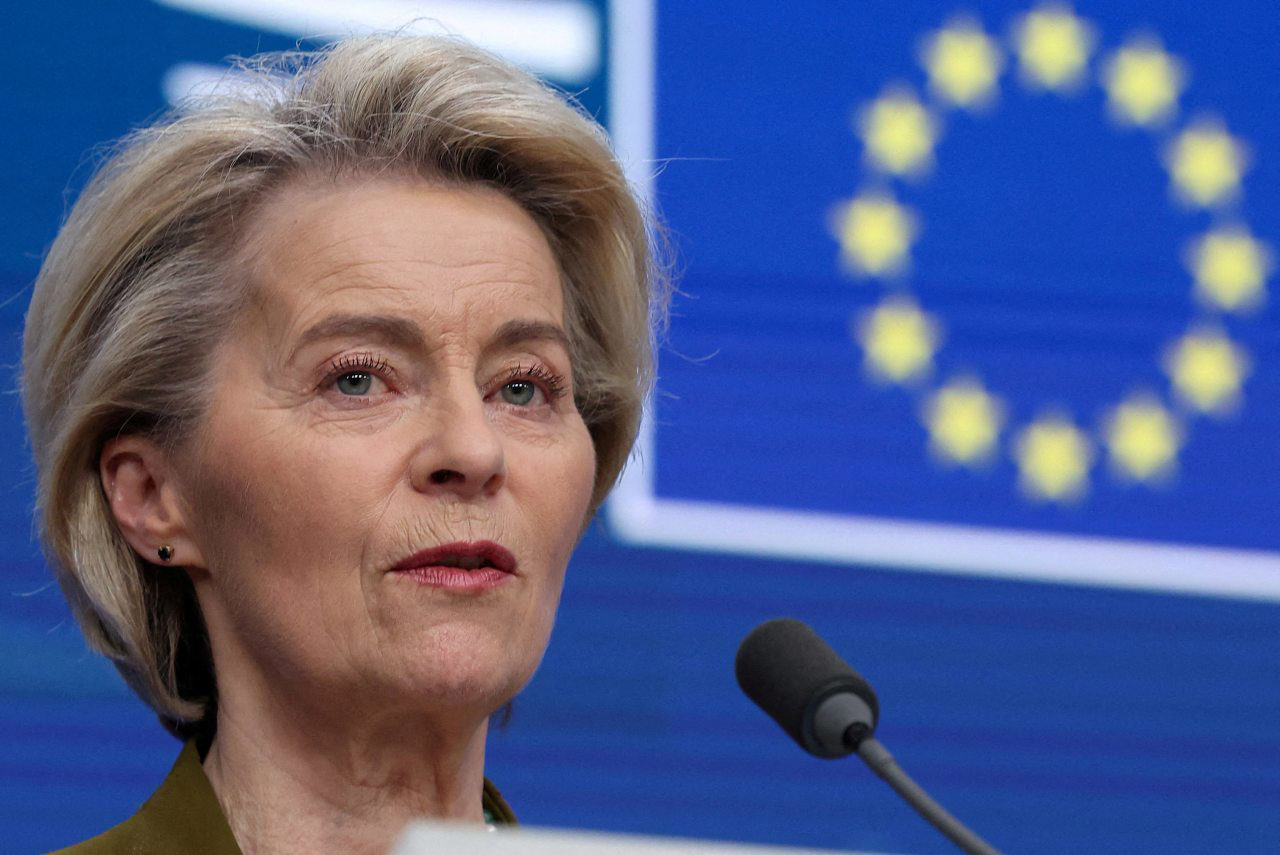Trump Sets 15% Tariffs on EU Goods After $750 Billion Energy Deal with Europe
In a significant shift in transatlantic trade relations, U.S. President Donald Trump has announced a 15% tariff on all European Union (EU) goods. This decision, unveiled during a recent meeting in Scotland with EU Commission President Ursula von der Leyen, marks a reduction from the 30% tariffs originally threatened earlier this month. The announcement comes on the heels of a landmark deal in which the EU pledged to invest €600 billion in American projects and purchase €750 billion worth of U.S. energy over the next several years.
Background & Context
The imposition of tariffs has long been a contentious issue in international trade, with the U.S. historically leveraging them to protect domestic industries. Trump"s announcement reflects ongoing tensions between the U.S. and the EU, particularly regarding trade balances and economic policies. The original threat of a 30% tariff had sent shockwaves through European markets, prompting swift negotiations to avert what many feared would escalate into a full-blown trade war.
The new agreement reached in Scotland is significant not only for its immediate economic implications but also for its potential to reshape energy dynamics across the Atlantic. With Europe facing energy supply challenges, particularly in light of the ongoing conflict in Ukraine, the commitment to purchase substantial amounts of American energy could bolster U.S. energy exports and strengthen economic ties between the two regions.
Key Developments
During the meeting in Scotland, von der Leyen and Trump discussed various issues impacting transatlantic relations, ultimately culminating in the energy deal and the subsequent tariff announcement. The EU"s commitment to invest €600 billion in American infrastructure and projects is viewed as a strategic move to enhance economic cooperation and ensure energy security as Europe seeks alternatives to Russian energy supplies.
Trump framed the tariffs as a necessary measure to protect American interests while acknowledging the importance of the energy deal in mitigating the potential fallout of the tariffs. "This is a win-win situation for both sides," Trump stated, highlighting the dual benefits of securing American energy exports while maintaining a competitive edge in global markets.
\n\n
Image for Trump Sets 15% Tariffs on EU Goods After $750 Billion Energy Deal with Europe
Broader Impact
The introduction of a 15% tariff on EU goods is likely to have far-reaching implications for international trade. Economists warn that while the reduced tariff may lessen immediate tensions, it could still disrupt established supply chains and impact pricing across various sectors, from automotive to technology. As previously reported, similar situations have unfolded in other parts of the world, where trade tariffs have led to increased costs for consumers and businesses alike.
Experts also note that the deal"s focus on energy could reshape global energy markets, particularly as Europe seeks to reduce its dependency on Russian gas amid ongoing geopolitical tensions. The commitment to invest heavily in U.S. projects may create jobs and stimulate economic growth in the U.S., but analysts caution that it could also lead to a backlash in European markets as businesses adjust to the new trade landscape.
What"s Next
Looking ahead, the implementation of the 15% tariffs will undoubtedly be closely monitored by both U.S. and European businesses. Stakeholders are likely to call for clarity on how these tariffs will be enforced and which specific goods will be impacted. Additionally, ongoing discussions between U.S. and EU officials will be crucial in determining the future trajectory of trade relations.
As the world watches these developments unfold, the energy deal"s potential to stabilize relations may be put to the test in the coming months. The commitment to invest in American infrastructure could pave the way for further collaborations, but it remains to be seen how both sides will navigate the complexities of trade tariffs and energy dependencies in an increasingly polarized global landscape.

Image for Trump Sets 15% Tariffs on EU Goods After $750 Billion Energy Deal with Europe


![[Video] Heavy clashes and gunfire reported in Baghdad, Iraq](/_next/image?url=%2Fapi%2Fimage%2Fthumbnails%2Fthumbnail-1768342239932-848qsh-thumbnail.jpg&w=3840&q=75)




![[Video] Gunfire between Iraqi security forces and Sadr militias in Baghdad](/_next/image?url=%2Fapi%2Fimage%2Fthumbnails%2Fthumbnail-1768343508874-4redb-thumbnail.jpg&w=3840&q=75)
